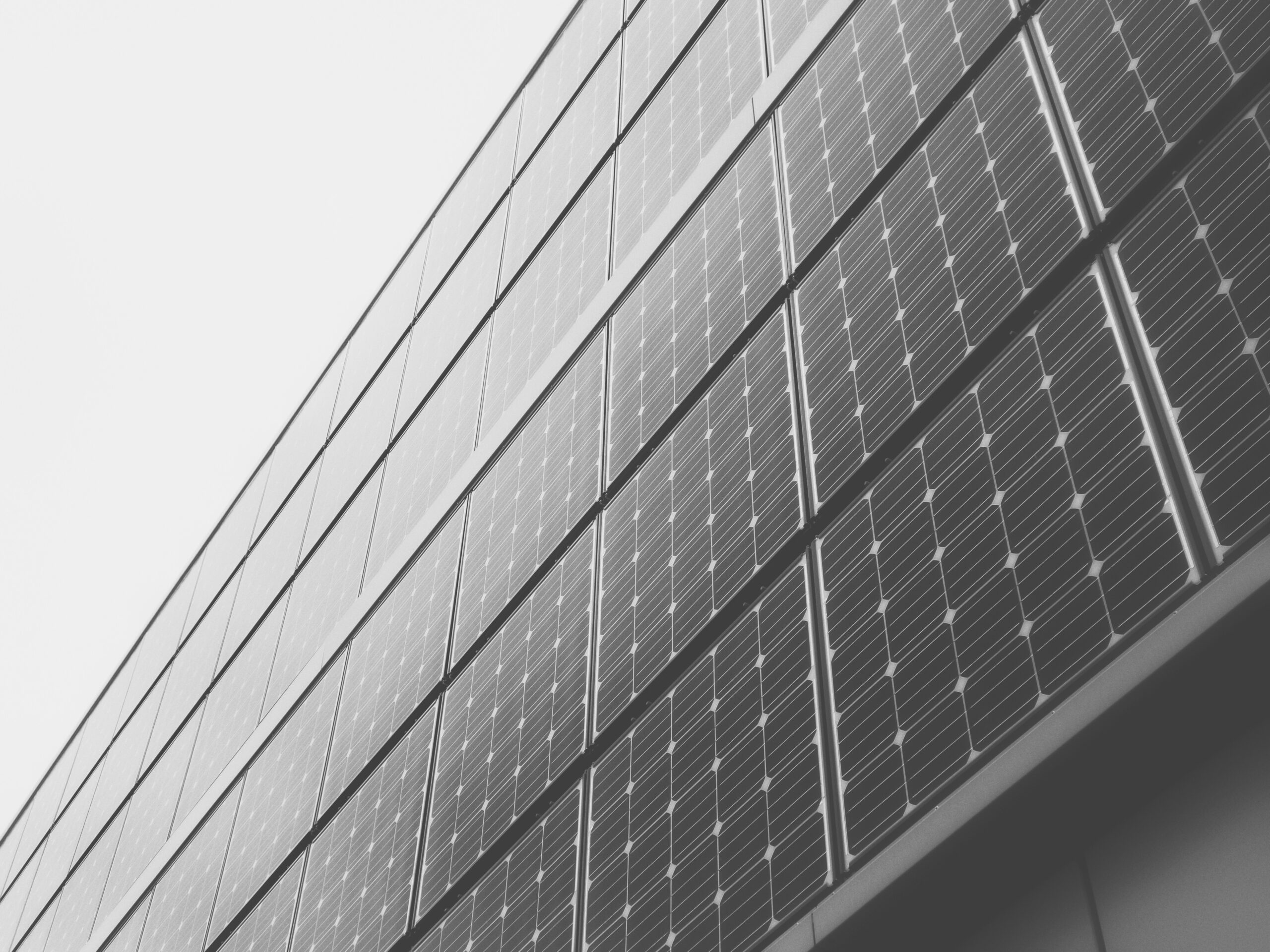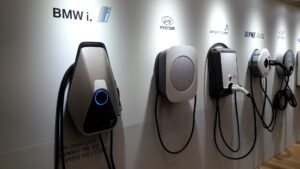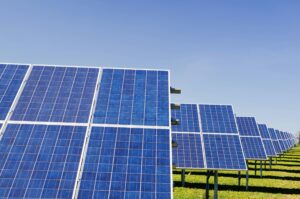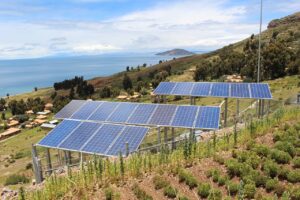Curious about the potential savings solar panels can bring to your energy bill? Look no further! In this article, we explore the benefits of switching to solar power and how it can significantly reduce your monthly energy expenses. Say goodbye to those high bills and hello to a greener, more cost-effective future. Let’s shed some light on the savings solar panels can offer you!
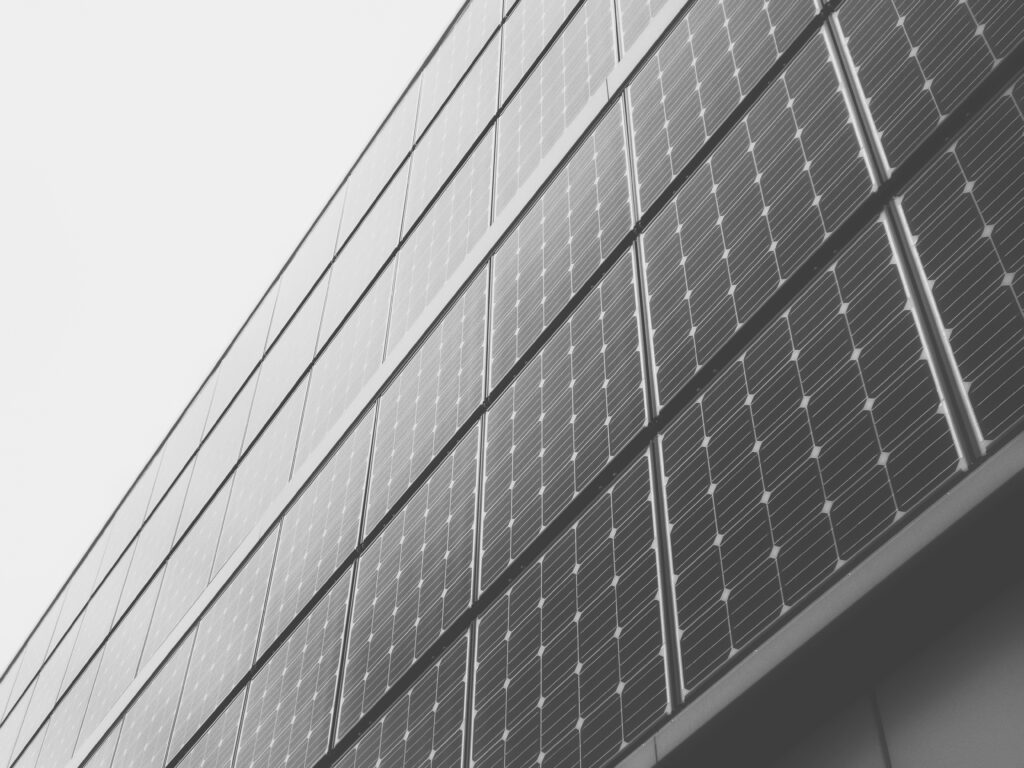
Benefits of Solar Panels
Solar panels offer numerous benefits that make them an attractive option for individuals, businesses, and industries alike. These benefits include a reduction in energy costs, lower dependence on the grid, and increased energy independence. By harnessing the power of the sun, solar panels can significantly contribute to a greener and more sustainable future.
Reduction in Energy Costs
One of the most significant advantages of solar panels is the potential for substantial savings on energy costs. By generating electricity from sunlight, solar panels allow users to offset or even eliminate their reliance on conventional energy sources. As a result, energy bills can be significantly reduced, providing long-term financial benefits.
Lower Dependence on the Grid
Solar panels provide the opportunity to reduce dependence on the traditional power grid. This is particularly beneficial during times of high demand or power outages since solar energy can be utilized as an alternative source of electricity. By relying less on the grid, individuals and businesses can gain greater control over their energy supply and reduce the impact of disruptions.
Increased Energy Independence
Solar panels offer a pathway to increased energy independence. With solar power, individuals and businesses can generate their own electricity, reducing the need to rely on external energy sources. This not only strengthens energy security but also provides peace of mind in knowing that power can be sustained even when the grid experiences issues. By embracing solar energy, we can strive towards greater self-sufficiency and a more resilient energy system.
Factors Affecting Savings
While the benefits of solar panels are clear, it is important to consider the various factors that can influence the potential savings. Key factors include location and sunlight availability, system size and efficiency, as well as electricity usage patterns. By understanding these factors, individuals and businesses can better assess the financial implications of implementing solar panels.
Location and Sunlight Availability
The amount of sunlight a location receives plays a crucial role in determining the effectiveness of solar panels. Regions with abundant sunshine throughout the year, such as desert areas, are more favorable for solar energy generation. However, even in areas with less sunlight, advancements in solar panel technology have made it possible to generate electricity efficiently. It is important to consult with solar professionals to assess the viability of solar panel installation based on the specific location.
System Size and Efficiency
The size and efficiency of the solar panel system directly impact the amount of electricity generated. A larger system can produce more energy, leading to greater potential savings. Additionally, the efficiency of the solar panels themselves can affect the conversion of sunlight into electricity. It is essential to consider these factors when designing a solar panel system to optimize savings and performance.
Electricity Usage Patterns
Understanding one’s electricity usage patterns is crucial for accurately estimating potential savings. Solar panels generate energy during daylight hours, so it is important to align a significant portion of electricity consumption with solar production. By analyzing historical electricity bills and usage patterns, individuals and businesses can tailor their solar panel system to maximize savings during peak hours.
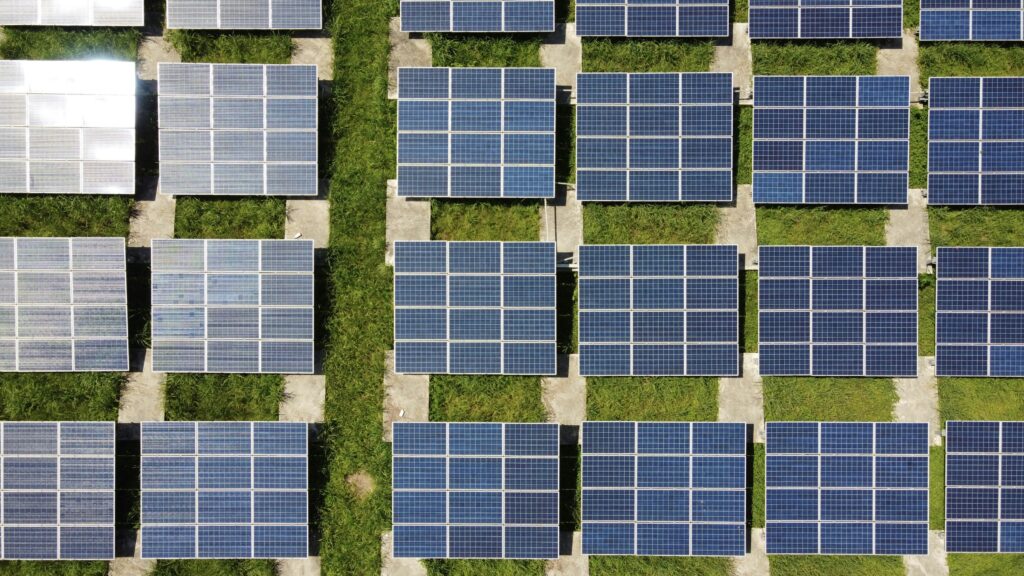
Calculating Potential Savings
To determine the potential savings from solar panels, several factors need to be considered. These include an energy usage analysis, installation and equipment costs, incentives and rebates, and the return on investment. By evaluating these factors holistically, individuals and businesses can make informed decisions about the financial viability of solar panel installation.
Energy Usage Analysis
Analyzing energy usage involves examining historical electricity bills, determining peak power demands, and identifying specific patterns of consumption. By conducting a thorough analysis, individuals and businesses can estimate the percentage of electricity that can be offset by solar energy. This analysis serves as a foundation for calculating potential savings and understanding the long-term financial implications.
Installation and Equipment Costs
The cost of solar panel installation and equipment is an essential factor in calculating potential savings. This includes the cost of purchasing and installing the panels, as well as necessary supporting equipment such as inverters and wiring. It is crucial to obtain quotes from reputable solar installers and consider factors such as warranties, maintenance, and system design when evaluating the overall cost.
Incentives and Rebates
To promote the adoption of solar energy, various incentives and rebates are available at regional, state, and federal levels. These incentives can significantly offset the upfront costs of installing solar panels and contribute to overall savings. Common incentives include tax credits, cash rebates, and grants. It is important to research and understand the eligibility criteria and application process for these incentives to take full advantage of potential savings.
Return on Investment
Calculating the return on investment (ROI) is a vital step in determining the financial viability of solar panels. ROI considers the savings generated by solar energy over its expected lifespan compared to the initial investment. By factoring in factors such as energy costs, incentives, and equipment lifespan, individuals and businesses can make informed decisions about the feasibility and profitability of installing solar panels.
Case Studies
Examining real-life case studies provides valuable insights into the potential savings associated with solar panels. Three case studies will be explored: a residential property, a small business, and an industrial facility. These case studies illustrate the varying financial benefits that solar panels can offer across different sectors.
Case Study 1: Residential Property
In this case study, let’s consider a family living in a residential property with an average monthly electricity bill of $150. After conducting an energy usage analysis, it is determined that solar panels can offset 80% of their electricity consumption. By installing a solar panel system with an upfront cost of $15,000, the family takes advantage of a 30% federal tax credit and receives a $2,000 cash rebate from their state government.
Over the course of the system’s expected lifespan of 25 years, the family saves an average of $1,200 per year on their energy bill. This amounts to a total savings of $30,000 over the lifespan of the system. Taking into account the upfront cost, tax credit, and rebate, the net investment is $10,000. With the savings, the family achieves a positive return on investment and enjoys the long-term financial benefits of solar panels.
Case Study 2: Small Business
In this case study, let’s consider a small business with monthly electricity expenses totaling $1,500. After a thorough energy usage analysis, it is determined that solar panels can offset 60% of the business’s energy consumption. The business decides to install a solar panel system with an upfront cost of $50,000. They take advantage of a 30% federal tax credit and receive a $10,000 cash rebate from their state government.
Over the system’s expected lifespan of 25 years, the business saves an average of $9,000 per year on their energy bill. This amounts to total savings of $225,000 over the lifespan of the system. Considering the upfront cost, tax credit, and rebate, the net investment is $27,000. The business achieves a positive return on investment and enjoys both the financial and environmental benefits of solar panels.
Case Study 3: Industrial Facility
In this case study, let’s consider an industrial facility with high energy demands and monthly electricity bills averaging $50,000. Through an energy usage analysis, it is determined that solar panels can offset 40% of the facility’s energy consumption. The facility decides to install a large-scale solar panel system with an upfront cost of $500,000. They take advantage of a 30% federal tax credit and receive a $100,000 cash rebate from their state government.
Over the system’s expected lifespan of 25 years, the industrial facility saves an average of $240,000 per year on their energy bill. This amounts to total savings of $6 million over the lifespan of the system. Considering the upfront cost, tax credit, and rebate, the net investment is $290,000. The facility achieves a significant return on investment and establishes itself as an environmentally responsible industry leader.
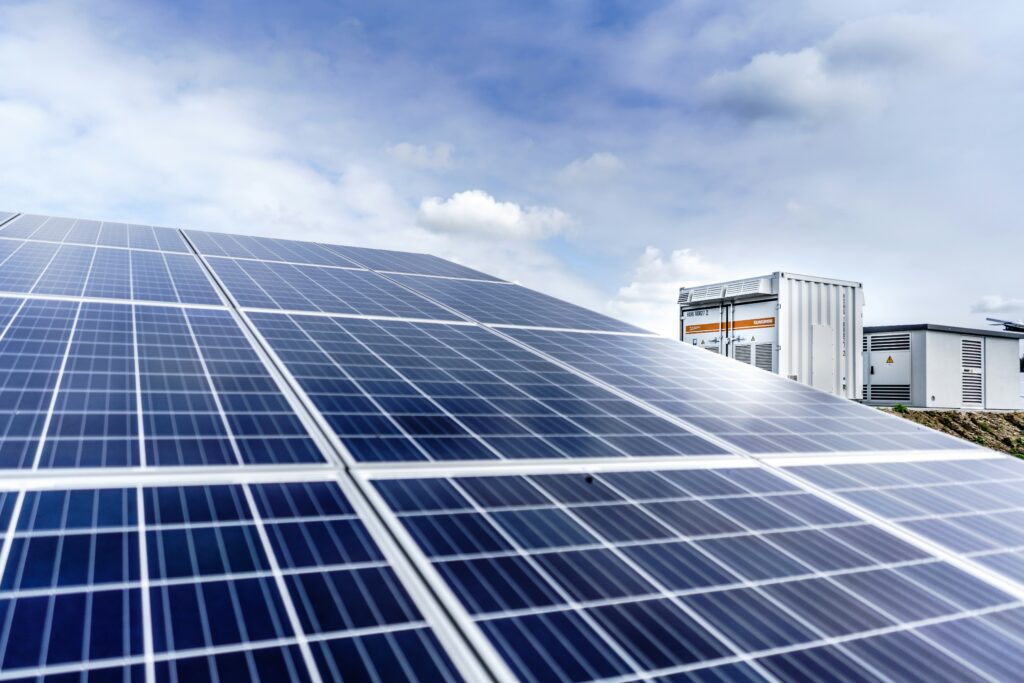
Average Savings Potential
Based on the case studies and various factors, let’s explore the average savings potential for residential properties, small businesses, and industrial and commercial properties.
Residential Properties
On average, residential properties implementing solar panels can expect to reduce their electricity bills by 50% to 80%. Factors such as location, system size, efficiency, and usage patterns contribute to the range of potential savings. With the right combination of factors, homeowners can significantly reduce their reliance on the grid and enjoy substantial long-term savings.
Small Businesses
For small businesses, the average savings potential with solar panels ranges from 30% to 60%. By offsetting a significant portion of their energy consumption, small businesses can achieve notable reductions in operational costs. These savings can be reinvested back into the business, enhancing profitability and contributing to sustainability goals.
Industrial and Commercial Properties
Industrial and commercial properties can experience average savings ranging from 20% to 50% with solar panels. Due to larger scales of energy consumption, the absolute savings can be substantial. By embracing solar energy, these properties can not only reduce their environmental impact but also achieve considerable financial benefits, improving their competitive edge in the market.
Other Financial Benefits
In addition to direct savings on energy costs, solar panels offer other financial benefits that further enhance their appeal. These benefits include net metering, solar renewable energy certificates, and tax credits and deductions.
Net Metering
Net metering allows individuals and businesses to sell excess electricity generated by their solar panels back to the grid. This effectively “spins the meter backward,” providing credits on future bills. Net metering policies vary by location, but they can potentially allow solar panel owners to offset their energy consumption beyond their immediate needs, maximizing the financial benefits.
Solar Renewable Energy Certificates
Solar Renewable Energy Certificates (SRECs) provide an additional stream of revenue for solar panel owners. These certificates represent the environmental attributes associated with solar energy generation. By selling these certificates on a renewable energy market, solar panel owners can receive payments that further contribute to the financial benefits of their investment.
Tax Credits and Deductions
Various tax credits and deductions exist at the federal, state, and local levels to incentivize the adoption of solar energy. The federal Investment Tax Credit (ITC) is a significant incentive that allows individuals and businesses to deduct a portion of their solar panel system’s cost from their federal taxes. Additionally, some states offer their own incentives, such as property tax exemptions or sales tax exemptions. These tax benefits can further reduce the upfront costs and improve the financial viability of solar panels.
Potential Issues and Limitations
While solar panels offer numerous benefits, it is important to acknowledge and address the potential issues and limitations that can affect their effectiveness.
Upfront Costs
The initial investment required for solar panel installation can be a significant barrier for many individuals and businesses. However, the long-term savings and financial benefits often outweigh the upfront costs. It is important to explore financing options and incentives to make solar panels more accessible and affordable.
Limited Sunlight or Shade
For areas with limited sunlight or significant shade coverage, the efficiency and effectiveness of solar panels can be compromised. It is crucial to conduct a thorough site assessment and consult with solar professionals to determine the feasibility and expected output in such conditions.
Roof Compatibility
Roof compatibility is another important consideration. Some roofs may not be structurally suitable for solar panel installation, or their orientation and angle may not optimize sunlight exposure. Solar professionals can provide guidance on the best installation options for different types of roofs.
System Maintenance
While solar panels require minimal maintenance, periodic inspections, cleaning, and potential equipment replacements may be necessary. It is important to factor in these maintenance costs and considerations when evaluating the long-term financial benefits of solar panels.
Considering Long-Term Benefits
Beyond the immediate financial benefits, it is essential to consider the long-term advantages of solar panels.
Rising Energy Costs
Energy costs tend to increase over time, driven by various factors such as inflation, increased demand, and limited resources. By installing solar panels, individuals and businesses can mitigate the impact of rising energy costs. As electricity rates continue to rise, the savings from solar panels become even more significant, providing a more stable and predictable financial future.
Property Value Increase
Solar panels can increase the value of residential and commercial properties. Studies have shown that homes with solar panels often sell for higher prices and have faster market turnover. Additionally, businesses with solar panels can attract environmentally conscious customers and differentiate themselves in a competitive market. The increase in property value contributes to the overall financial benefits of solar panels.
Environmental Benefits
Solar panels offer substantial environmental benefits by reducing reliance on fossil fuels and mitigating greenhouse gas emissions. By embracing solar energy, individuals and businesses can actively contribute to combating climate change and creating a more sustainable future for our planet. The environmental benefits associated with solar panels provide intrinsic value that goes beyond financial considerations.
Consulting with Solar Professionals
To navigate the complexities of solar panel installation and maximize potential savings, consulting with solar professionals is highly recommended. Solar professionals can offer valuable expertise and assistance throughout the process, including site assessment, financial analysis, and installation and maintenance support.
Site Assessment
A comprehensive site assessment is crucial to determine the suitability and expected performance of solar panels. Solar professionals can evaluate factors such as roof orientation, shade coverage, and local regulations to provide accurate insights and recommendations. By engaging with solar professionals, individuals and businesses can ensure optimal installation and maximize potential savings.
Financial Analysis
Solar professionals can conduct a thorough financial analysis to assess the viability and potential savings of installing solar panels. By considering factors such as upfront costs, incentives, and long-term savings, they can provide valuable information to support informed decision-making. This analysis helps individuals and businesses understand the financial implications and make confident choices.
Installation and Maintenance
Solar professionals play a vital role in the installation and maintenance of solar panel systems. They have the expertise to design and install systems that maximize energy production and efficiency. Additionally, they can provide guidance on maintenance requirements and potential system upgrades to ensure the longevity and performance of the solar panel investment.
Conclusion
Solar panels offer a viable and attractive option for individuals, businesses, and industries seeking energy savings and a greener future. The benefits of solar panels, including reduced energy costs, lower dependence on the grid, and increased energy independence, make them a valuable investment. By considering factors such as location, system size, and electricity usage patterns, individuals and businesses can calculate potential savings and understand the financial implications.
Through case studies, we have seen how solar panels can generate substantial savings for residential properties, small businesses, and industrial facilities. Additionally, we explored other financial benefits such as net metering, solar renewable energy certificates, and tax credits and deductions. It is important to be aware of potential issues and limitations, such as upfront costs and limited sunlight availability, but these can often be addressed with proper planning and consultation with solar professionals.
By considering the long-term benefits, including rising energy costs, property value increase, and environmental benefits, solar panels prove to be a wise investment. Consulting with solar professionals for site assessment, financial analysis, and installation and maintenance support is highly recommended to ensure optimal results. With careful consideration and informed decision-making, solar panels offer a pathway to energy savings, financial benefits, and a sustainable future.

